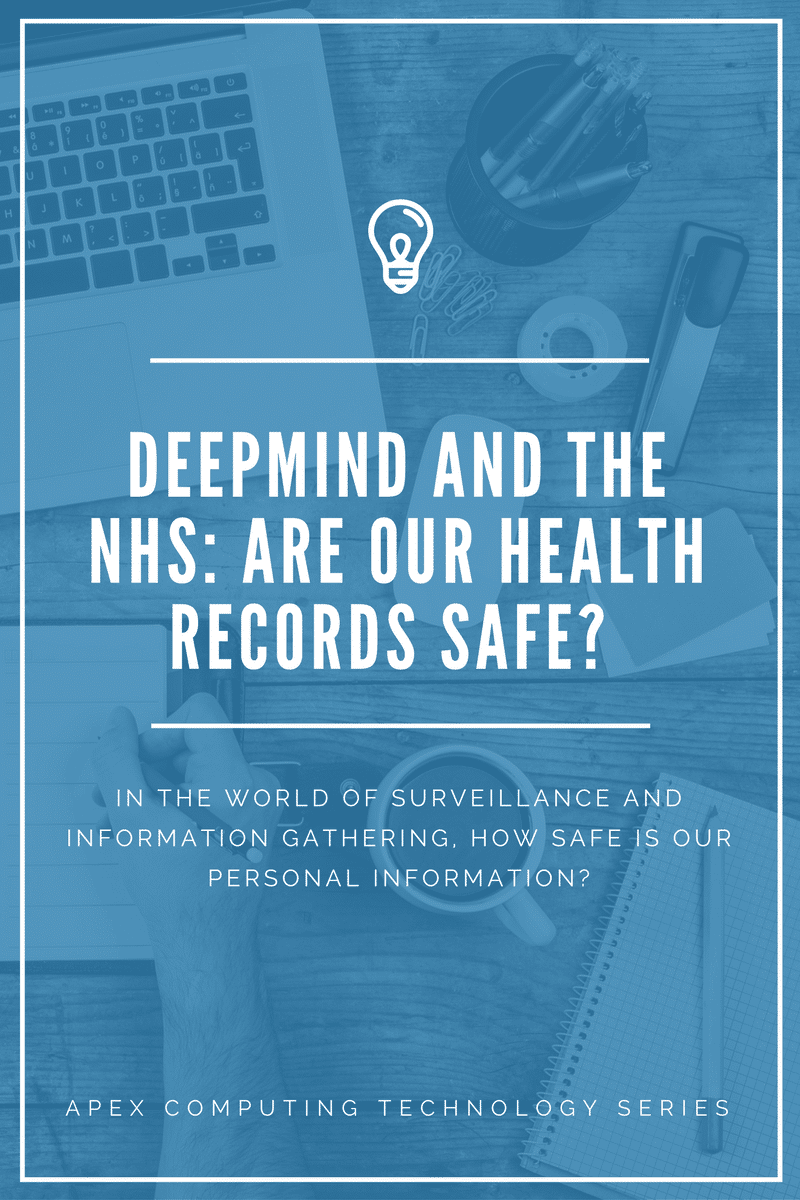30 Mar DeepMind And The NHS
Heated discussions around data security were sparked afresh in 2016, as New Scientist uncovered Google’s ploy to trawl through UK medical records. DeepMind, the company’s A.I. branch, is sweeping reams of sensitive patient information to let doctors know who’s at risk of illness before it strikes.
This epitomises the story of our times – a need for privacy vs. the potential rewards of surveillance. Apex Computing can’t help but be fascinated by such a debate, as it highlights the cost of technological innovation. Who, ultimately, will benefit from it?
The deal in a nutshell
DeepMind has been around since 2010, building artificial intelligence systems that can learn, interact and function independently. Google acquired the business four years later, and upped the brand’s funding tremendously.
Artificial Intelligence is a hot topic in many corners of the world, so any development team causing a fuss in this sector is bound to attract attention. Perhaps, that’s one of the reasons why the Royal Free Hospital trust, comprising of three healthcare sites in the UK, has agreed to open its patient files to a DeepMind app project.
Basically, the software can analyse millions of confidential records, pinging messages to doctors who are focused on other duties. These alerts will determine whether someone is likely to suffer acute kidney injury (AKI), an illness responsible for 20% of emergency hospital admissions. DeepMind staff claim the app will do wonders for the timekeeping and responsive talents of our health professionals, testing this theory out in a five-year trial.
Weighing up the argument
While there’s no nobler purpose than saving lives, there has been a modest backlash against the scheme. As ever, this focuses on the premise that Google, one of the biggest companies on the planet, should not get its hands on personal data.
If a breach were to occur, cynics argue, then potentially hundreds of thousands of private medical records could fall into the hands of the wrong people. And, although Google denies it will take the data for its own commercial ends, it’s hard to trust those who pull the strings of technology.
Still, the NHS is comfortable with the software’s encryption abilities, which will supposedly guard against a data breach. Where you personally fall on this argument depends on how capable – or overstretched – you perceive our health system to be. If doctors are on strike and public funding ever tighter, perhaps there is a role for A.I. to lighten the load?
Maybe DeepMind will be a proving ground for how benevolent, or damaging, large-scale artificial intelligence can be. Time will certainly tell over the coming years, as we put the possibilities of A.I. to the test.
For the tech adopters amongst us, Apex can help you master the art of A.I. within your own business. We’re here to make sure your hardware, systems and servers are running effectively. Have a look at our full range of IT services, and contact us for more computing know-how.

